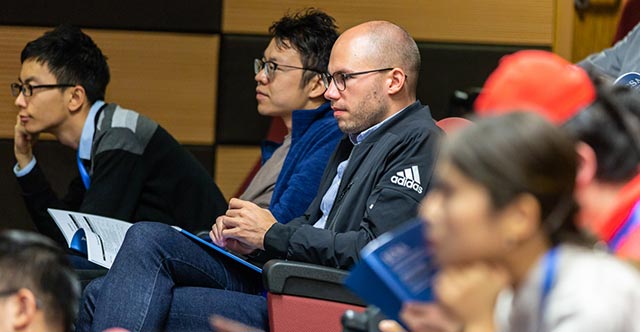
Conference Theme
“This is my body”: The Human Body as Site for Intersectional Discourse on
Practical Theology and Bioethics
Evelyn L. Parker, PhD
APT President
Twenty-year-old female college student, Jean, arrives in the hospital emergency room near her college campus accompanied by her nineteen-year-old roommate, Dana. Jean has visible bruises on her face, neck, and arms; her dress is torn and bloody. She is unable to walk without assistance from Dana. Jean is crying and between her sobs she mumbles, “It’s all my fault. John is a good Christian man, and I should not have provoked him. I know God is not pleased with the way I dress sometimes.” Jean, a black/white biracial young adult, grew up in a small Southwest town with her retired military parents. John, a white male football player and son of Protestant clergy parents, grew up in a large Southwest city. Jean and John met during a Christian Athletes Fellowship bible study. Dana recently converted from being a cradle Roman Catholic to Islam and practices dress codes of modesty that include the hijab. Jean admonishes Dana not to tell the medical and school authorities anything she has said about John and the injuries to her body.
The above fictitious scenario centers on Jean’s body and invites us to think about the human body through the lens of Practical Theology and other intersecting disciplines. The scenario is replete with intersecting issues that include gender, race/ethnicity, class, sexuality, religious beliefs, theology, and public policy. In like manner, gene-edited (CRISPR) babies, HeLa Cells, Palliative Care, Hospice Care, spiritual care, congregational/community health education, as well as the co-occurring health risk of IPV and HIV/AIDS are among the topics that require intersectional thinking about sociocultural, socioeconomic, and sociopolitical aspects of health care for human beings. These issues are relevant for discourse in the fields of Bioethics and Practical Theology. Bioethics is concerned about “areas of human life in which health care and the biomedical sciences can affect human well-being” (Alastair Campbell, Bioethics: The Basics, 2017). Practical Theology is concerned about “embodiment of religious beliefs in the day-to-day lives of individuals and communities,” in ways that include beliefs/practices, research methodology, and ministerial practices (Bonnie Miller-McLemore, “Practical Theology” in Encyclopedia of Religion in America, 2010). These broad definitions of Bioethics and Practical Theology provide an entry point for questions about people and their bodies – regardless of their social location – in pursuit of human flourishing.
There are many questions at the intersection of Practical Theology and Bioethics that include: How might religious education attend to questions of faith, embodiment, and biomedical issues within congregations? How can people of faith ethically steward their money when the choices are cancer research or Planned Parenthood Clinics? How might preachers/homileticians attend to issues of the body that include Roe v. Wade, aging congregations, sex reassignment surgery, and healthcare costs and poverty? How do liturgists shape and celebrate rituals bodily in order to attend to the similar concerns of preachers? What is the responsibility of theological education – schools and accrediting agencies – in training religious leaders to foster the flourishing of religious believers – body, mind, and soul? What new curricular areas and courses might we imagine to prepare women and men to attend to diverse religious beliefs/practices and healthcare as they serve in communities around the globe? How do religious leaders nurture the spiritual lives of parishioners considering involvement in clinical trials who are concerned that they may be placing their faith for healing in the science of experimental medicine and not faith in God? How do the physician, nurse, and medical technologist understand and articulate their vocation?
The 2020 Association of Practical Theology (APT) Biennial Conference at the Houston Methodist Research Institute in Houston, Texas, April 17-19, will explore the above questions, and many more, as we consider the human body as the site for conversation about the intersection of Bioethics and Practical Theology. The theme invites textured and interdisciplinary exploration of Practical Theology, the human body, health care, biomedical sciences, medical ethics, and biomedical research.
How can Practical Theology engage Bioethics for the ultimate goal of divine flourishing when women and men commend their bodies to health care professionals and like Jesus Christ say, “This is my body….” (Luke 22:19b).
MEMBERSHIP BENEFITS
The Association of Practical Theology (APT) offers membership full of benefits that will enhance and enrich your understanding. Your membership gets you:
- Biennial Conference Entry
- Conference papers
- Job Openings database
- Members-Only articles
- Members-Only online videos
- Access to Members directory
- and more
Our Purpose...
The Association of Practical Theology (APT) promotes critical discourse that integrates theological reflection and practice. Reconstituted from its predecessor organizations 1984, the APT was sparked by the investigation of practical theology as an integrative hermeneutical endeavor at the heart of theological education, characterizing not only the ministerial sub-disciplines but also a manner and method of engaged reflection.
